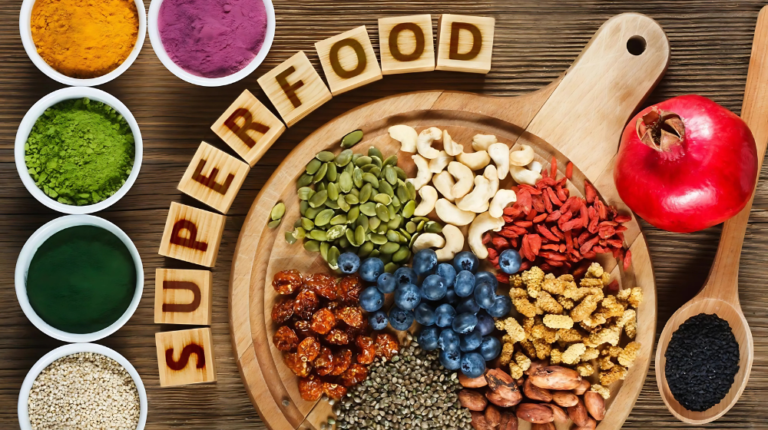Explore the top 10 superfoods to boost your health, from nutrient-packed berries to heart-healthy salmon, and enhance your overall wellness.
Introduction
Superfoods are the nutritional rock stars of the food world. Packed with vitamins, minerals, and antioxidants, these foods can elevate your diet and support your overall health. In this article, we’ll dive into the top 10 superfoods you should consider including in your daily meals. By adding these power-packed foods to your routine, you can boost your energy, improve heart health, and even fight off chronic diseases.
Have you ever heard the term “superfood” and wondered what makes a food super? In the wellness world, superfoods are celebrated for their nutrient density and potential health benefits. These foods provide a potent dose of vitamins, minerals, antioxidants, and other beneficial compounds. Including them in your diet can help you feel better, look better, and even reduce your risk of chronic diseases.
What are Superfoods?
Superfoods are foods that offer a high concentration of essential nutrients that have the potential to improve health and fight disease. They are typically plant-based but can also include fish and dairy. Superfoods are recognized for their rich content of vitamins, minerals, and antioxidants that contribute to various aspects of wellness. But what exactly makes them so “super”? Let’s dive deeper into the science behind these foods.
Defining the Term “Superfood”
The term “superfood” doesn’t have an official scientific definition, but it’s widely accepted as describing foods that are nutrient-dense and beneficial to your health. These foods often have powerful antioxidants and are low in unhealthy fats and sugars. They are natural sources of nutrients that can contribute to better health outcomes.
Why Superfoods Matter for Your Health
Including superfoods in your diet offers numerous benefits. They help fight oxidative stress and inflammation, improve gut health, boost energy levels, and even support brain function. Adding nutrient-packed foods to your meals is an easy way to improve your diet without feeling like you’re sacrificing flavor or enjoyment.
The Science Behind Superfoods
So, what’s the big deal about superfoods? The secret lies in their nutrient density. These foods are packed with vitamins, minerals, and antioxidants that help combat disease and maintain bodily functions. Whether it’s reducing inflammation, supporting your immune system, or improving heart health, the science behind superfoods is impressive.
Nutrient Density
Nutrient density refers to the amount of essential nutrients (vitamins, minerals, fiber, and antioxidants) in a given food relative to its calorie content. Superfoods are typically low in calories but high in nutrients, which makes them a great choice for anyone looking to optimize their health.
Antioxidants and Health Benefits
Many superfoods are rich in antioxidants, which are compounds that help neutralize harmful free radicals in the body. This helps reduce oxidative stress, which can contribute to aging and disease. Superfoods such as berries, kale, and turmeric are known for their powerful antioxidant properties.
Top 10 Superfoods to Include in Your Diet
Ready to discover the top 10 superfoods that can supercharge your diet? Let’s dive in.
1. Blueberries: Tiny but Mighty
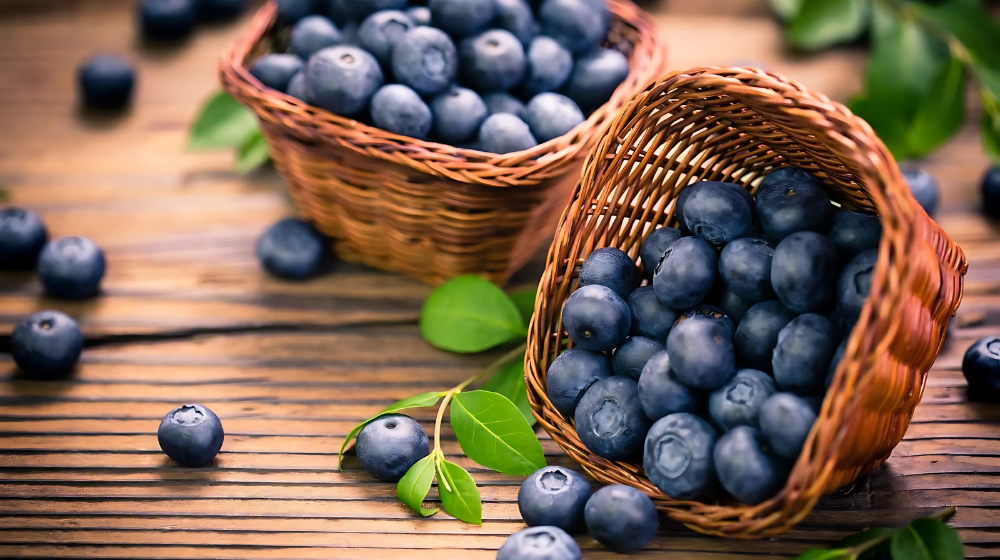
Blueberries are often hailed as the ultimate superfood. These tiny berries are packed with antioxidants, particularly anthocyanins, which have been shown to improve brain function, protect against heart disease, and even fight cancer.
Health Benefits of Blueberries
Blueberries are rich in Vitamin C, K, and fiber. They support heart health, improve cognitive function, and have anti-inflammatory effects. They’re also great for boosting immunity and can help lower blood pressure.
How to Add Blueberries to Your Diet
Add them to smoothies, oatmeal, or salads, or simply enjoy them as a snack. You can also use them in baking or mix them into yogurt for a tasty, nutrient-packed breakfast.
2. Spinach: The Leafy Green Powerhouse
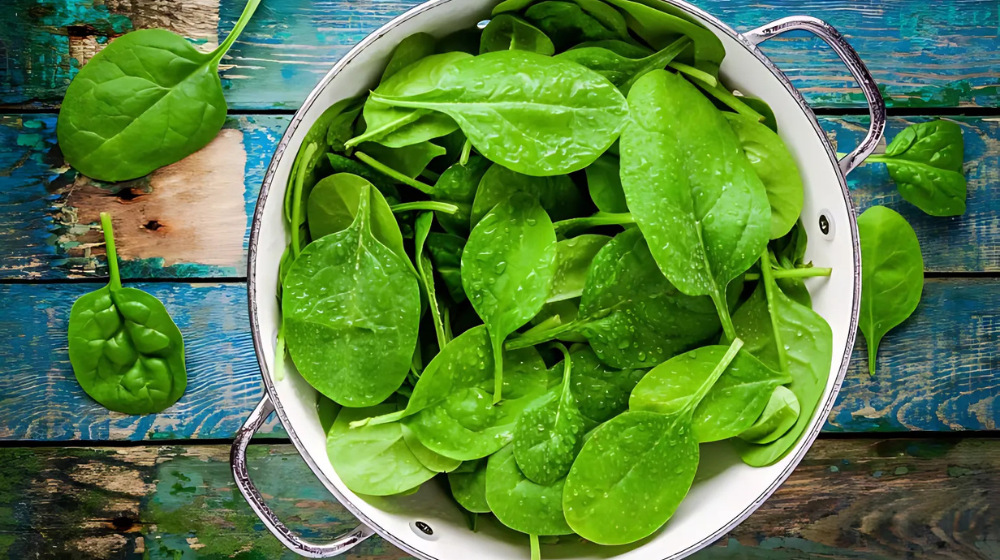
Spinach is loaded with vitamins and minerals, including iron, Vitamin K, and folate. This leafy green can boost your energy, support your immune system, and help maintain healthy bones.
Health Benefits of Spinach
Spinach is rich in antioxidants, which help reduce inflammation and promote skin health. It’s also a great source of fiber and iron, making it excellent for digestion and energy.
How to Include Spinach in Your Diet
Toss it into salads, blend it into smoothies, or add it to soups and omelets. It can be enjoyed both raw and cooked.
3. Salmon: Rich in Omega-3s

Salmon is a powerhouse when it comes to healthy fats. Rich in omega-3 fatty acids, it promotes brain health, reduces inflammation, and supports heart health.
Health Benefits of Salmon
Omega-3s help lower blood pressure, reduce the risk of heart disease, and improve brain function. Salmon also provides a good amount of protein, making it a great choice for muscle repair and growth.
How to Cook Salmon for Maximum Health Benefits
Grill, bake, or pan-sear salmon for a quick and healthy meal. You can also use it in salads, wraps, or sandwiches.
4. Chia Seeds: The Tiny Nutrient Powerhouse
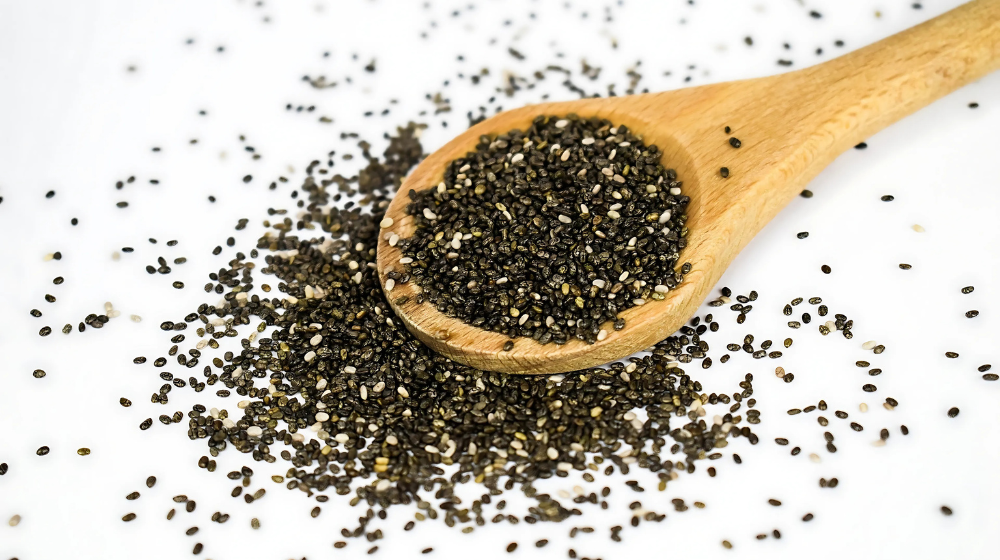
Despite their small size, chia seeds are loaded with fiber, omega-3 fatty acids, protein, and antioxidants.
Health Benefits of Chia Seeds
Chia seeds promote heart health, improve digestion, and help regulate blood sugar levels. They’re also packed with protein, making them a great plant-based protein source.
How to Add Chia Seeds to Your Diet
Sprinkle chia seeds on your oatmeal, yogurt, or smoothie, or mix them into baked goods for a nutritious boost.
5. Avocados: A Creamy Heart-Healthy Superfood
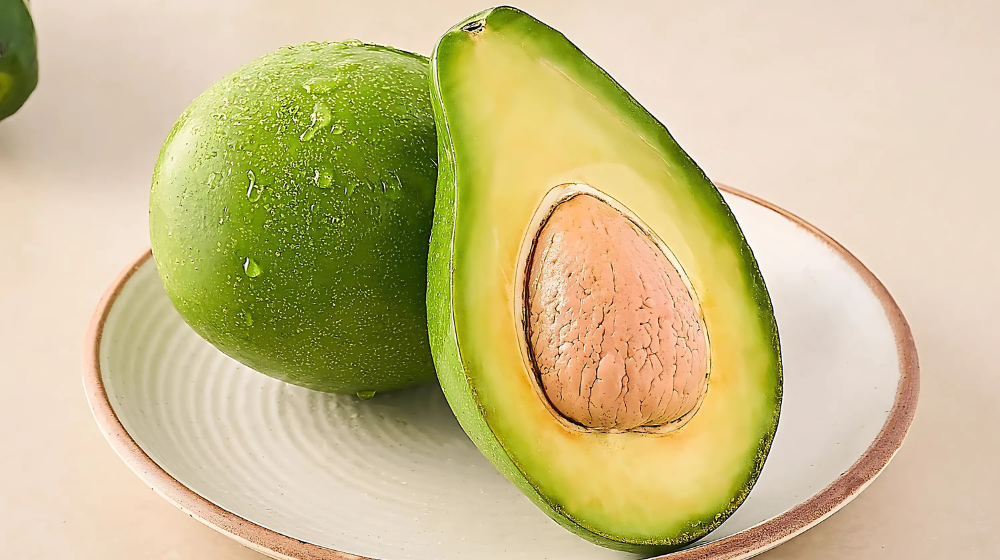
Avocados are rich in healthy fats, particularly monounsaturated fat, which supports heart health and helps lower bad cholesterol.
Health Benefits of Avocados
Avocados are packed with potassium, fiber, and healthy fats. They promote heart health, support digestion, and are great for skin health due to their vitamin E content.
Ways to Include Avocados in Your Meals
Mash them on toast, blend them into smoothies, or add slices to salads and tacos. You can also make guacamole for a delicious dip.
6. Kale: The King of Leafy Greens
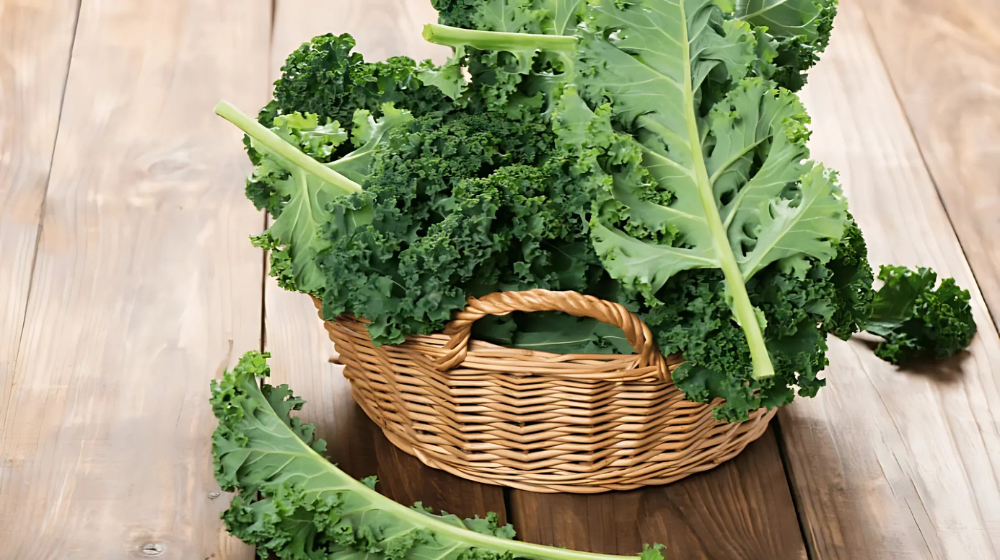
Kale is loaded with vitamins A, C, and K, making it one of the most nutrient-dense vegetables available.
Health Benefits of Kale
Kale supports heart health, boosts immunity, and promotes healthy skin. It’s also packed with antioxidants, which help fight oxidative stress.
How to Incorporate Kale into Your Diet
Add kale to salads, smoothies, or soups. You can also make crispy kale chips as a healthy snack.
7. Almonds: A Healthy Nut for Your Heart
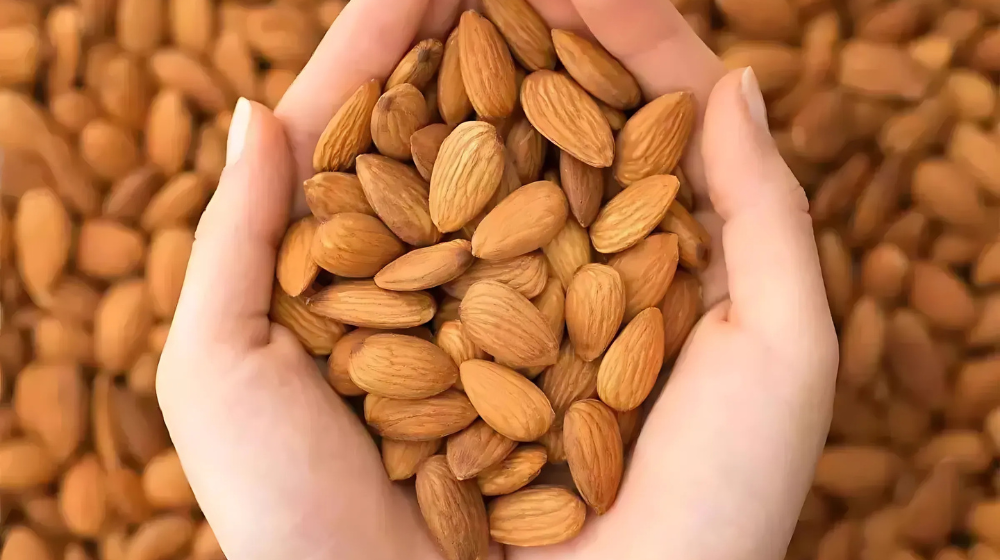
Almonds are high in healthy fats, fiber, and protein. They’re great for heart health and can also help control blood sugar levels.
Health Benefits of Almonds
Almonds help lower cholesterol, reduce the risk of heart disease, and support weight management due to their high fiber content.
How to Include Almonds in Your Diet
Snack on almonds, sprinkle them on salads, or add almond butter to smoothies and toast.
8. Sweet Potatoes: A Nutritious and Delicious Carb
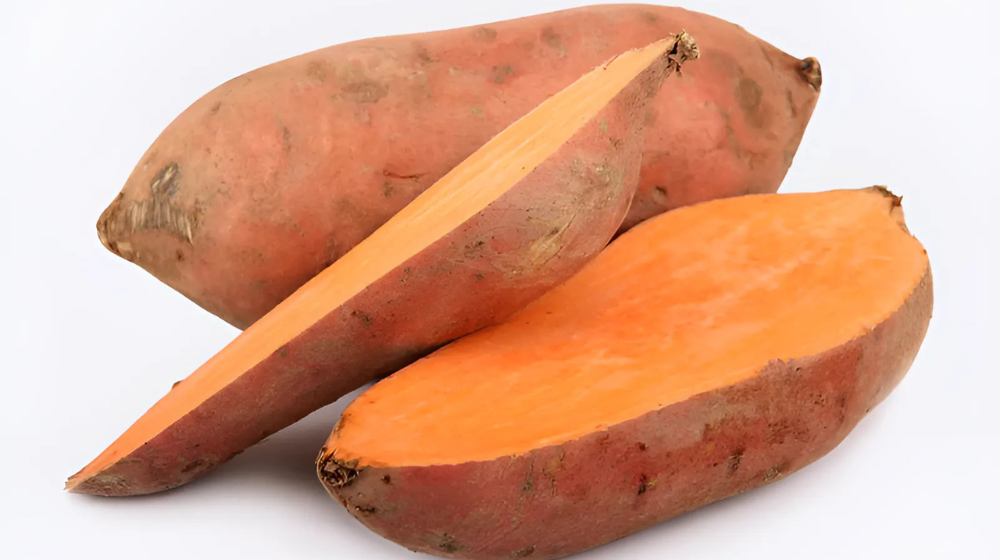
Sweet potatoes are rich in vitamins A and C, fiber, and antioxidants.
Health Benefits of Sweet Potatoes
They support immune health, promote digestive health, and are a great source of energy. Sweet potatoes also have anti-inflammatory properties.
How to Add Sweet Potatoes to Your Diet
Roast, bake, or mash sweet potatoes for a nutritious side dish, or add them to stews and soups.
9. Greek Yogurt: The Protein-Packed Probiotic
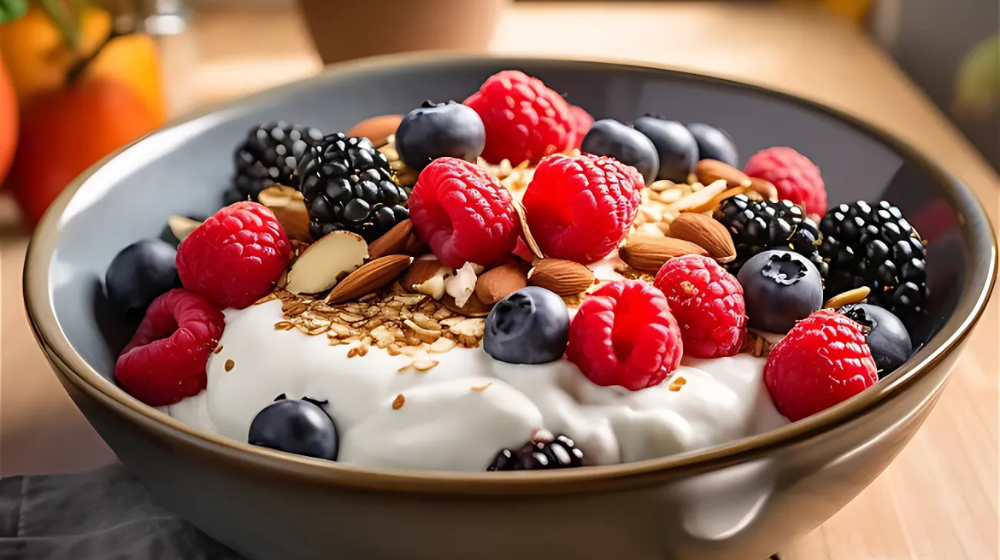
Greek yogurt is packed with protein, probiotics, and calcium. It supports gut health, improves digestion, and helps with muscle repair.
Health Benefits of Greek Yogurt
Greek yogurt is great for digestive health due to its probiotic content, and it’s also rich in protein, which aids muscle growth and recovery.
Ways to Enjoy Greek Yogurt
Eat it as a snack, mix it into smoothies, or top it with fresh fruit and honey for a healthy breakfast.
10. Turmeric: The Golden Root of Health
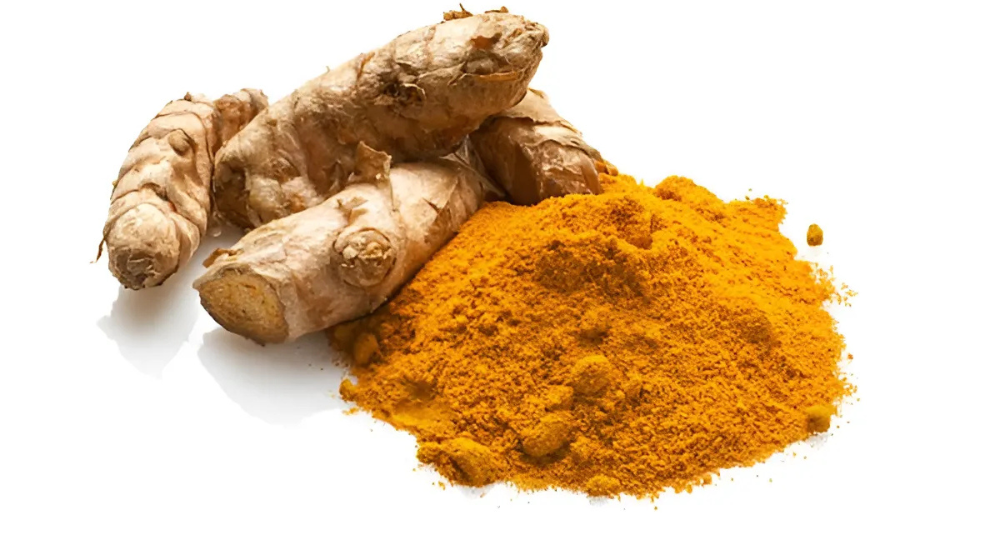
Turmeric contains curcumin, a powerful anti-inflammatory compound that has been shown to fight cancer, improve brain function, and reduce joint pain.
Health Benefits of Turmeric
Turmeric supports joint health, reduces inflammation, and boosts brain function. It’s also an antioxidant-rich spice that fights oxidative stress.
How to Incorporate Turmeric into Your Meals
Add turmeric to soups, stews, curries, or smoothies. You can also make a turmeric latte (golden milk) for a warming, anti-inflammatory drink.
How to Incorporate Superfoods into Your Daily Meals
Including superfoods in your diet doesn’t have to be complicated. Simple additions like berries in your morning oatmeal or adding leafy greens to your salad can make a big difference. Let’s look at how to incorporate them into your day.
Meal Planning Tips for Superfood Success
Plan your meals around superfoods by incorporating a variety of them throughout the week. Batch cooking or meal prepping can help you stay consistent.
Smoothies and Superfoods: A Perfect Pair
Smoothies are an excellent way to combine multiple superfoods in one meal. Blend ingredients like spinach, blueberries, chia seeds, and Greek yogurt for a nutrient-packed drink.
Conclusion
Superfoods are an easy and delicious way to enhance your health. By including these top 10 superfoods in your diet, you can support everything from your heart to your brain to your digestion. Make small, consistent changes to
your meals, and you’ll soon notice the benefits.
FAQs for Blueberries
What are the health benefits of blueberries?
Blueberries are packed with antioxidants, particularly anthocyanins, which promote brain health, improve heart function, and reduce inflammation.
Can blueberries help with weight loss?
Yes, blueberries are low in calories and high in fiber, which can help you feel full longer and support healthy weight loss.
How can I incorporate blueberries into my diet?
You can add blueberries to smoothies, oatmeal, yogurt, or salads, or simply enjoy them as a healthy snack.
Are frozen blueberries as nutritious as fresh ones?
Yes, frozen blueberries retain most of their nutritional benefits, including antioxidants, making them a great option when fresh berries aren’t available.
How do blueberries help your skin?
The antioxidants in blueberries, such as vitamin C and flavonoids, can help reduce skin damage from free radicals, promoting healthier, youthful-looking skin.
FAQs for Spinach
Is spinach a good source of iron?
Yes, spinach is a great source of plant-based iron, which is essential for producing red blood cells and preventing anemia.
Can spinach improve digestion?
Yes, spinach is high in fiber, which aids digestion and promotes healthy bowel movements.
How much spinach should I eat daily?
Including about 1-2 cups of spinach in your daily diet provides a significant boost of nutrients, including vitamins A, C, and K.
Can I eat raw spinach?
Yes, raw spinach can be eaten in salads or smoothies. However, cooking spinach increases its availability of certain nutrients, like iron.
How does spinach benefit heart health?
Spinach contains antioxidants, folate, and potassium, which help maintain healthy blood pressure, reduce inflammation, and improve overall heart health.
FAQs for Salmon
What makes salmon a superfood?
Salmon is rich in omega-3 fatty acids, which support brain function, reduce inflammation, and promote heart health, making it a superfood.
Is it better to eat wild-caught or farmed salmon?
Wild-caught salmon generally has a higher omega-3 content and fewer contaminants compared to farmed salmon. Choose wild-caught for optimal health benefits.
How often should I eat salmon?
Eating salmon 2-3 times per week provides a good balance of omega-3 fatty acids and protein for heart and brain health.
Does cooking salmon reduce its health benefits?
While cooking salmon can reduce some of the omega-3 content, it still remains a highly nutritious source of healthy fats and protein when cooked.
Can salmon help with weight management?
Yes, the healthy fats in salmon, along with its high protein content, can help keep you full and satisfied, which may assist in weight management.
FAQs for Chia Seeds
How do chia seeds improve digestion?
Chia seeds are rich in fiber, which supports healthy digestion by promoting regular bowel movements and maintaining gut health.
Are chia seeds good for weight loss?
Yes, chia seeds are high in fiber and healthy fats, which help you feel full longer and can aid in weight loss.
How can I use chia seeds in my meals?
Add chia seeds to smoothies, yogurt, oatmeal, or baked goods. You can also soak them overnight in water or milk to create a chia pudding.
Can chia seeds lower cholesterol?
Yes, chia seeds are high in omega-3 fatty acids, which can help reduce LDL (bad) cholesterol and improve heart health.
Are chia seeds gluten-free?
Yes, chia seeds are naturally gluten-free, making them a great option for individuals with gluten sensitivity or celiac disease.
FAQs for Avocados
What are the health benefits of avocados?
Avocados are packed with healthy monounsaturated fats, fiber, potassium, and antioxidants, which support heart health, digestion, and skin health.
Are avocados good for weight loss?
Avocados contain healthy fats and fiber that can help you feel fuller longer, making them a great choice for weight management when consumed in moderation.
Can I eat avocado every day?
Yes, eating avocado daily is beneficial due to its healthy fats, but be mindful of portion sizes to avoid excess calorie intake.
How do avocados help with skin health?
The vitamin E and antioxidants in avocados can help moisturize the skin, reduce wrinkles, and promote a healthy glow.
How can I include avocados in my meals?
You can add avocado to toast, salads, smoothies, or even make guacamole as a dip for veggies and whole grains.
FAQs for Kale
What are the main health benefits of kale?
Kale is rich in vitamins A, C, and K, as well as antioxidants and fiber. It helps improve heart health, boosts immunity, and promotes healthy digestion.
Is kale good for weight loss?
Yes, kale is low in calories and high in fiber, making it a great addition to a weight-loss diet by helping you feel full and satisfied.
How should I cook kale for the most health benefits?
You can enjoy kale raw in salads or smoothies, or lightly sauté it to preserve its nutritional value while making it more tender.
Can kale help detoxify the body?
Yes, kale is rich in fiber and antioxidants that support liver function and help the body detoxify naturally by flushing out toxins.
Can I eat too much kale?
While kale is incredibly nutritious, eating it in large amounts may interfere with thyroid function due to its goitrogenic properties. Moderation is key.
FAQs for Almonds
Are almonds good for heart health?
Yes, almonds are rich in monounsaturated fats, which help reduce bad cholesterol (LDL) and support heart health.
How many almonds should I eat each day?
A handful of almonds (about 1 ounce or 23 almonds) per day is recommended for optimal health benefits.
Can almonds help control blood sugar levels?
Yes, almonds can help regulate blood sugar levels due to their high fiber content, healthy fats, and low glycemic index.
Are almonds good for weight management?
Yes, the combination of healthy fats, protein, and fiber in almonds can help keep you full, supporting weight management and reducing cravings.
Can almonds improve brain function?
Yes, almonds are rich in vitamin E and omega-3 fatty acids, which are known to support cognitive function and brain health.
FAQs for Sweet Potatoes
What are the benefits of sweet potatoes?
Sweet potatoes are rich in vitamins A and C, fiber, and antioxidants, which support immune health, digestive health, and skin health.
Can sweet potatoes help with weight loss?
Yes, sweet potatoes are low in calories and high in fiber, making them a filling and nutritious option for weight loss.
How should I cook sweet potatoes?
Sweet potatoes can be roasted, baked, mashed, or added to soups and stews for a delicious and nutritious side dish.
Are sweet potatoes healthier than regular potatoes?
Yes, sweet potatoes are lower on the glycemic index and higher in vitamins and antioxidants compared to regular potatoes.
Can sweet potatoes boost your immune system?
Yes, the high vitamin A content in sweet potatoes supports immune function and helps protect against illness.
FAQs for Greek Yogurt
What are the health benefits of Greek yogurt?
Greek yogurt is rich in protein, probiotics, and calcium, which support digestive health, muscle recovery, and strong bones.
How does Greek yogurt help with digestion?
The probiotics in Greek yogurt help maintain a healthy gut flora, which improves digestion and supports a healthy immune system.
Can Greek yogurt help with weight loss?
Yes, Greek yogurt is high in protein and low in sugar, making it an excellent choice for weight management by promoting satiety.
How can I enjoy Greek yogurt?
Greek yogurt can be eaten on its own, mixed into smoothies, topped with fruit, or used as a substitute for sour cream in recipes.
Is Greek yogurt lactose-free?
While not all Greek yogurt is lactose-free, many brands offer lactose-free versions, making it suitable for people with lactose intolerance.
FAQs for Turmeric
What are the benefits of turmeric?
Turmeric contains curcumin, a powerful anti-inflammatory compound that helps reduce pain, improve brain function, and support joint health.
Can turmeric help reduce inflammation?
Yes, turmeric is well-known for its anti-inflammatory properties and is often used to treat joint pain, arthritis, and other inflammatory conditions.
How can I add turmeric to my diet?
Turmeric can be added to soups, stews, curries, smoothies, or even drinks like turmeric lattes (golden milk) for its health benefits.
Is turmeric good for your skin?
Yes, turmeric’s anti-inflammatory and antioxidant properties can help reduce acne and improve skin complexion when used topically or ingested.
Does cooking turmeric reduce its benefits?
Cooking turmeric slightly reduces its curcumin content, but pairing it with
black pepper can enhance its absorption in the body.
By healthylyfe


